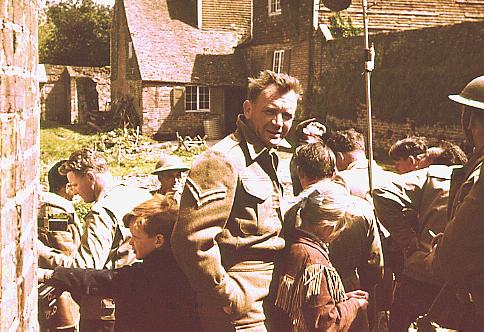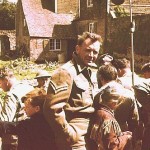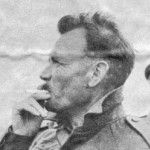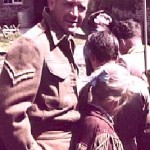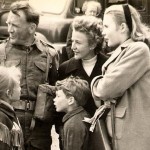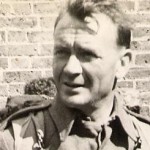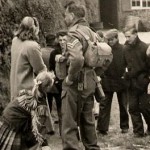By Jim Hollands
When the film “Dunkirk” came to local cinemas’ in 1959 every seat was taken for every performance.
John Mills and Richard Attenborough starred in the War epic, but it was not just these two famous stars they had gone to see.
People from Lydd, New Romney, Hythe and Rye had gone to catch a glimpse of themselves!
Big sections of the film had been shot at Camber, Dungeness, Lydd and Rye and every able bodied man, woman and child had got into the act as “extras”. The men were English Tommies, French, Belgian and German soldiers, the women, children and older men were cast as refugees. If you doubt me just ask any Marshman or woman who lived here at the time, they all have their own stories to tell.
My own claim to fame is that John Mills joined me as I sat in the sand dunes at Camber eating the boxed lunch provided by the film company. Superstar John Mills had exactly the same lunch as the hundreds of extras, no special treatment for English stars in those days. I was rather overawed by the great man but he soon put me at ease with his questions about local places. Like many other visitors, he had fallen in love with the area.
My other abiding memory is of a day when it was taking hours to get the shot ready. A group of Rye extras were waiting in the dunes. Alf Ridges, who was rather deaf, was sleeping on a ledge high up on the sand bank. I started digging out at the base of the hill, just with one hand and watched the ripple of sand climbing higher and higher until it reached Alf. Soon the perch he was sleeping on started to shrink until it became unstable and eventually collapsed altogether. Down came Alf with a roar. He chased me along the sands for half a mile.
The story of the film is told in this very descriptive official review ;-
“With the Nazis almost on top of them, the British Expeditionary Force struggle to return to safe waters. Re-enactment of the famous retreat starring John Mills.
The British ability to treat the two imposters of success and failure just the same is summed up by Dunkirk, the punishing WWII defeat from which Britain bounced back to enjoy its finest hour.
It’s appropriate that the task of recounting this tale should fall to Ealing, that most British of studios who, as the producers of Scott Of The Antarctic, had something of a track record when it came to cataloguing heroic national failure. Directed by Barry Norman’s father Leslie, Dunkirk marries two stories; on the one hand a band of British soldiers, led by John Mills’
Corporal Bins, are trying to make their way to the Belgian coast while – on the other – civilians – whose number includes Richard Attenborough’s John Holden – make the journey across the Channel to rescue the stranded squaddies.
Since Norman was something of a bread-and-butter director (he enjoyed his greatest success in TV, shooting episodes of ‘The Saint’ and ‘Randall & Hopkirk (Deceased)’, and since Ealing had little money to invest in the project, Dunkirk could have easily sunk without trace. But by raising his game and spending his budget wisely, Norman crafted a film that didn’t so much document the defeat as bottle the Dunkirk spirit so that future generations might sample it.
With the screenplay drawing on strong sources – including the Bradford and Butler play ‘Dunkirk’ and Elleston Trevor’s novel ‘The Big Pickup’ – the decision to concentrate on small stories rather than the battle as a whole makes sense as the chaos of Dunkirk might have made for confusing viewing.
Watch out for a television screening in the near future.
From “Hythe & Romney Life June 2013
All articles, photographs and drawings on this web site are World Copyright Protected. No reproduction for publication without prior arrangement. © World Copyright 2015 Cinque Ports Magazines Rye Ltd., Guinea Hall Lodge Sellindge TN25 6EG
